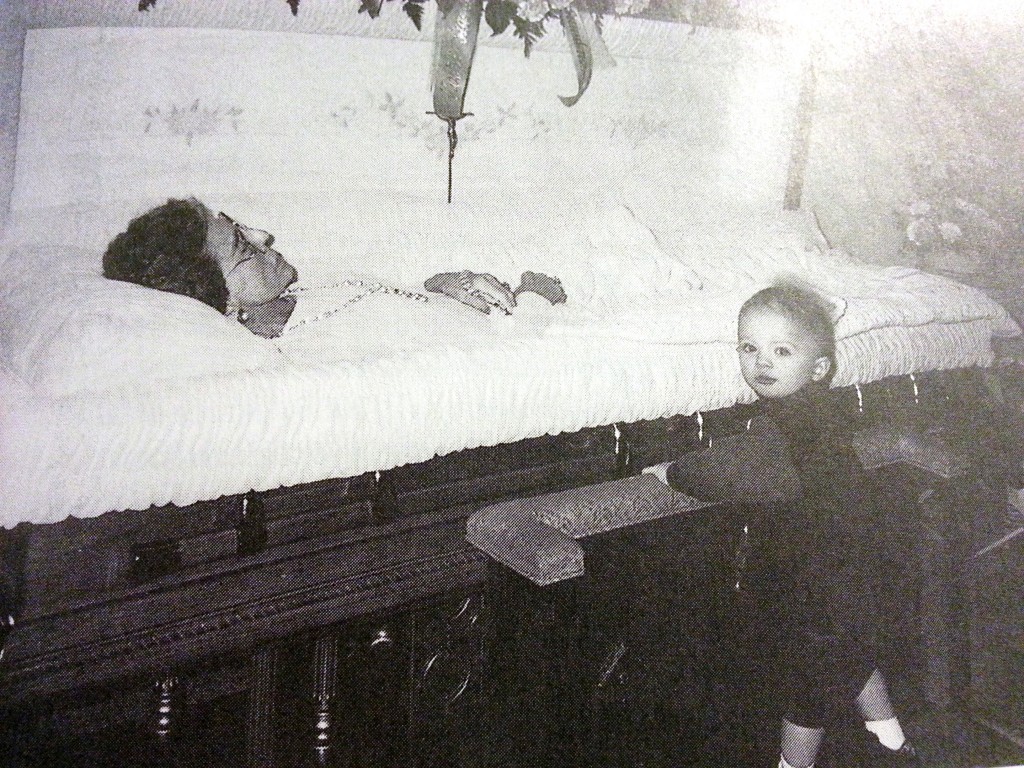Aggregate Death
Zelda William’s Tattoo Tribute to Her Father
There’s a reason why so many choose to symbolize loss with a tattoo. When it comes to death, many of us try to forget, so that we can forget the pain … only to remember years later, that what we fought so hard to move past and “forget” is something we should really remember.
It’s an innate desire for humanity to remember what we can forget with symbols. It’s an innate desire for us to remind others with symbols.
Like religious symbols, there’s a sense that when tattoos are used to remember the dead, those tattoos are holy … maybe even just as holy as religious symbols. Memorial tattoos symbolize our heritage, our love, our loss in a way that we and others must remember what we too easily forget.
Zelda Williams will be reminded of her father with every handshake. She writes, “I’ll always put my hand out to shake with a smile”
A Poem on Miscarriage: “Just Ten Weeks” by Susan Erling
Just Ten Weeks
by Susan Erling
For just 10 weeks
I had you to myself.
And 10 weeks seems too short a time for
you to have changed me so profoundly.
In just 10 weeks
I came to know you … and to love you.
You came to trust me with your life.
Oh, what a life I had planned for you!
Just 10 weeks
Then I lost you.
I lost a lifetime of hopes, plans, dreams, and aspirations.
A slice of my future simply vanished overnight.
Just 10 weeks
It wasn’t enough time to convince others
how special and important you were.
How odd, a truly unique person has died
recently, and no one is mourning the passing.
Just 10 weeks.
And no normal person would cry all night
over a tiny 10-week fetus, or get depressed
and withdrawn day after endless day.
No one would, so why am I?
You were just 10 weeks, my little one. You
darted in and out of my life too quickly.
But it seems you only needed 10 weeks to
make my life so much richer and give me a
small glimpse of eternity
Should You Talk to Your Children about Death?
This from “Death and Dying, Life and Living” (Page 346):
In our society, adults often wonder if they should talk to children about death, what they should say, and how they should act with children in death-related situations.
These questions arise in many ways:
Should we discuss death with children or teach them about loss and grief even before a death takes place?
What should we say to children after a death occurs?
Should we take children to funeral services?
Perhaps the most difficult of all questions of this type arise in situations in which adults (parents, family members, or care providers) are challenged by a child who has a life-threatening illness and who is facing his or her imminent death.
One recent contribution to the discussion (Kreicbergs et al., 2004) described a study of Swedish parents whose child had died from cancer between 1992 and 1997. Among the 561 eligible parents, 429 reported on whether they had talked about death with their child. Results showed that more than a quarter of those who did not talk with their child about death regretted that they had not done so. Similar regrets were reported by nearly half of the parents who had sensed that their child was aware of his or her imminent death. By contrast, among the parents who had talked with their children about death, “No parent in this cohort later regretted having talked with his or her child about death (p. 1175).
The implications of this study suggest that, despite all of the challenges involved in talking to a child about death and even in the very demanding circumstances of a child facing his or her imminent death, it is most often better to go ahead with such conversations. The main reason for this is that, as Rabbi Earl Grollman has often said, “Anything that is mentionable is manageable.” Opening a line of communication with children is preferable to allowing them to try to cope on their own with incomplete or improperly understood information and the demons of their own imaginations. In addition, a child who is able to have his or her concerns addressed in a thoughtful and loving way is a child who has someone he or she can trust when there is a need to look for a source of support.
























